Far Away Eyes’ Deeper Look Supernatural 11.20 “Don’t Call Me Shurley”
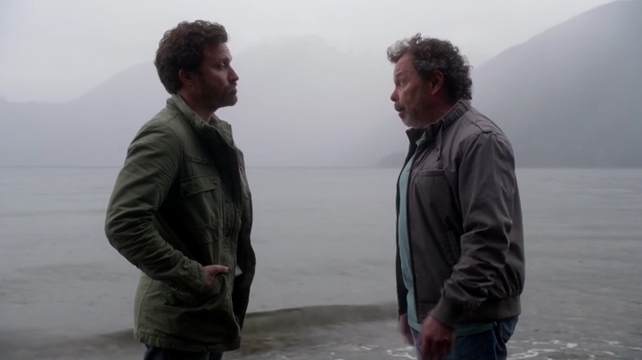
“In the beginning, there was me. Boom — detail. And what a grabber. I mean, I’m hooked, and I was there,” Chuck tells a stunned Metatron. The former angel and Scribe of God turned human has been brought into a bar to help God write his next masterpiece: his autobiography. It’s a rough sketch lacking all the details. He’s been feverishly working on it since Amara’s release, and now he wants to finish it before everything he’s created goes dark and disappears forever. Who else could be better suited to help him with this task than his former editor and Scribe? After all, once he’s passed his awe and groveling, Metatron will be the most honest on the integrity of Chuck’s current manuscript.
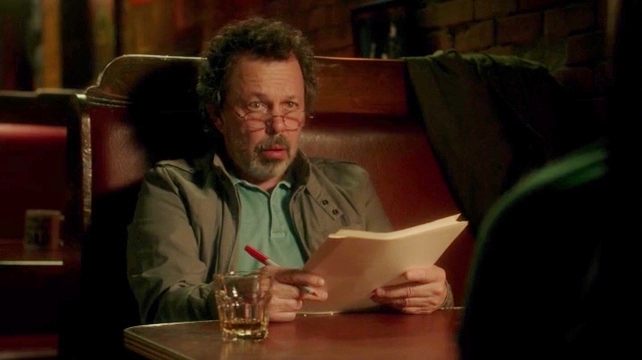
The former Scribe also sets off Chuck’s temper when he brings up his sister, Amara. He’s concerned about her release and what it’ll mean for him and for everything. He pushes, assuming, “I mean, that’s why you’re back right?” Chuck becomes God in that moment, retorting back, “This isn’t her story. It’s mine.” Pursuing that subject—forbidden by Chuck—is the path Metatron must take to arrive at the truth. The more they talk, the more they work, the more Chuck reveals about how he created the world and why he locked Amara away in the first place. He states simply, “I am being. She’s nothingness. It’s not exactly the makings of a fun two-hander, you know?”
It is his statement about “being” that reveals a key truth about the two sides in the argument between Light and Dark, God and Amara. They are extremes. He is “being” and she is “nothingness.” He is light, she is dark. He is creation, she is destruction. He is order, she is chaos. The balance required between them is missing. Neither will see the other side of the argument clearly. The two have reached an utter impasse. God would create worlds and universes while she would come behind him and undo all his work. The endless cycle sounds exhausting as Chuck tells Metatron the truth about him and his sister—it’s in his voice and his facial expressions. No matter what he did, no matter what he’d create, she’d destroy it simply because she could.
Now it’s happening again.

Chuck tells Metatron why he continued to create beyond the archangels. He says, as they stand looking out over nature, “This was as close as I got to something as good as or better than me or my sister.” God wanted to create something he saw as being better than them, more worthy of existing, something filled with grace and wonder—and most of all balance. Nature has achieved that through natural selection and evolution as it gives rise to new forms and discards those that are no longer needed. Chuck tells Metatron, “Nature. I mean, look at what nature created on its own. What’s more, nature’s smart enough to know that sometimes, there’s no fixing things. Sometimes, you just have to wipe the slate clean.”
But it isn’t nature that truly outshines God and Amara.
The dichotomy between them reveals so much about the true hero of this episode: humanity. For the extremes of God and Amara, humanity has inherited both sides.
God failed with the angels—they are just as extreme or unbalanced as he and Amara already are. They are absolutes. The grey areas that exist in the world have come at a heavy price for their kind and they still do not understand the muddy waters they navigate in the post-Apocalypse universe. The Leviathans were also single-minded in their aim to destroy and devour. Creatures like werewolves and vampires and ghouls are a twisted manipulation of man into something far more extreme or absolute in their drives to feed. Many of these turned humans trend towards the darker natures and compulsions in a black and white existence. These forms all lack the balance Chuck finds in the majesty of the mountains and lake.

God and Amara are both trying to shine mirrors on themselves in this episode. They are both attempting to understand why their extreme is ultimately right and the other one is wrong. God searches endlessly for a mirror to reflect back why his creation is better than them while Amara wants to reflect the truth about God’s creation: that they are flawed and in need of destruction. She wants to show that everything God has built has been nothing but a lie and that the life that exists has no hope and no light. It’s why she makes the Deputy state, “The light was just a lie.” and “It will all be over soon. He’s not gonna save them. It’s all going away… forever. ”
Both, in a way, see creation and life as monumental failures. Life is messy and convoluted and full of grey areas that neither seems to truly understand the same way that humanity can and does. To Amara, it is all pointless drivel that leads to suffering and death and misery. The only answer is to wipe everything clean and walk away. For God, the creation he has left behind has led to disappointments. Instead of leaving something behind that is better than he and his sister, he has left behind weak and messy and destructive humans that seem to do more damage on their own than even his sister ever has.
He tells Metatron, “And the worst part — they do it in my name. And then they come crying to me, asking me to forgive, to fix things. Never taking any responsibility.”
In many respects, God sees this behavior as little more than a miniature version of Amara’s tendencies to undo all the work he does. Humans corrupt and destroy and ruin things. It is a disappointing aspect of our existence and history. Throughout time, wars waged in God’s name, to acquire new territories, resources, food, and more have cost thousands of lives and left so much earth scorched. It is easy to see this behavior as disappointing and defeating. It is easy to understand, on the surface, why God can simply state, “I am just done watching my experiments’ failures. ”
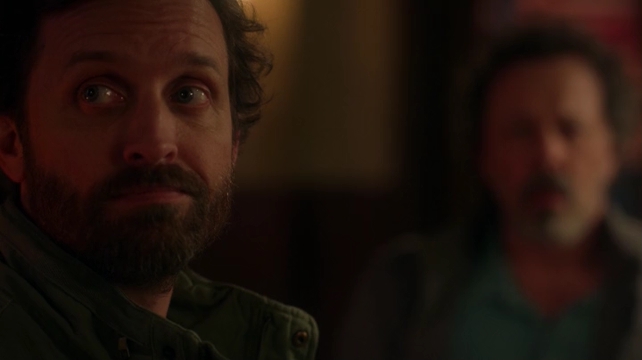
What is the point of fighting his sister on her drive to destroy when God himself does not see anything worth saving? Why should anyone care—beyond their own survival—when the Creator wants to watch it all burn?
It is here that Metatron stands in as advocate for humanity, appealing directly to God. Now that he is human himself, he has all the same emotions, the flaws, the very make up that makes us who and what we are—and yet he still has that angelic mentality that can and will make him less than one of us. At his fundamental core, he still sees himself as an angel—even if he’ll never be one ever again. Metatron knows the absolutes. He knows what God set forth in angelic kind and he has no shame in pointing the “juicy” bits about angels out to Chuck. In his drive to understand his former place in the cosmos, he prods to know why God created them—and abandoned them. He points to the memoir, stating, “Well, like, uh—like the archangels. I mean, you have got maybe two paragraphs on them in here. ”
Now, Metatron must get beyond the need to explore his own kind and the “why did you abandon me?” question. He must move beyond the drive to understand why God created angels at all. He must convince God that there is more to fight for here than simply all of angelic kind praying to God frantically after his departure. Every time Chuck despairs about humanity, he must remind God why he created them in the first place. After all, God had demanded they all bow to humanity—and that their mission was to protect humanity. Why? Metatron must hold that truth up and advocate for humanity—despite all of its inherent flaws.
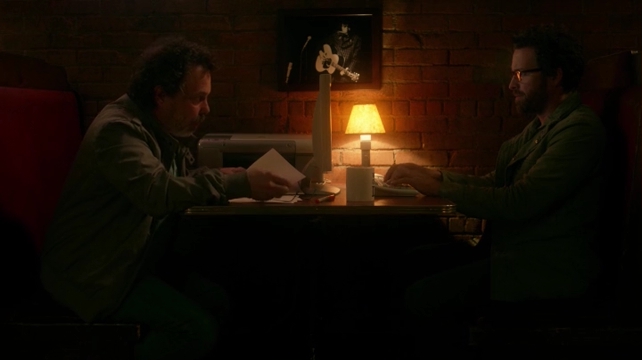
Metatron also knows that the Darkness will undo everything. The universe will reverse bang—return to the pinpoint from whence it came as if it never happened at all. It means everything that has ever happened and everything that ever could happen will have been for naught and lose any and all meaning. Amara’s destruction isn’t simply taking lives and ending the universe—it is rendering it into nothingness. It undoes all the stories that have been told. It undoes the fights, the triumphs, the joys, the sorrows, and everything that makes up everything into an emptiness. This, he cannot allow—and for far more noble reasons than his survival.
Unlike the Apocalypse, unlike the Leviathans, unlike Metatron’s terrible rise to power, there will be no winners here. Everyone but Amara will lose. Trying to win her over as Rowena did is a false hope. Trying to escape her power of destruction is futile. The only one she will spare is Dean Winchester—and even he will lose as he will be alone and without his brother. If she is not stopped, everything ends.
It’ll mean, then, that life itself was all in vain.
And so, Metatron must begin to fight earnestly for humanity. He must stand up as an advocate—no matter how strange it is in light of his colorful past as a “terrible, terrible God.” He can clearly see that Chuck or God or whatever he wants to call himself these days has given up on everything—and will happily watch his sister wash everything away. So, Metatron plays the strongest card in his deck. He states, “But I-you helped the Winchesters before.”

God states, “You know I love those guys, but the world would still be spinning with Demon Dean in it. But Sam couldn’t have that, though, could he? And so how is Amara being out on me?” It matters not who is responsible. What matters is that he has the power to do something about it and chooses not to. What matters is he sees this as no longer his problem. His “experiments” have failed one too many times and no matter how hard he’s tried to help them find their way to doing the right thing, they have made one too many mistake. He gave them Free Will and he will not be the “helicopter parent” to clean up their messes when they abuse it.
If Amara wants to wipe the slate clean, why should he care? Not even for Sam and Dean—the personification for all the Free Will he’s granted to humanity. Not for all the good they’ve done. Not for all of their joys and triumphs and struggles to save the world he left behind. God is tired of fighting what is now inevitable.
This laissez faire attitude incenses Metatron. Truthfully, much of his anger can be seen as serving his own survival. He’s human just like everyone else. Even if he wasn’t, there’s no way he could have stood up against Amara any more than any other angel. Even Lucifer has lost to her power. He is stunned that after all God’s insistence that humanity is the chosen one of creation—that they were to be protected and adored and held higher than anything else—that God will simply walk away and not see the truth staring him in the face.
Amara sees humanity as flawed and pointless—and God has come to agree. Metatron may have agreed with them at one point. He saw them as weak and fragile and easily overpowered. He knew they could be gullible enough to buy his Marv story as a new messiah. He knew they could be whipped up into fits of violence and greed and bigotry. Metatron is familiar with their darker side—their destructive side. And yet, he knows the truth that even God seems to miss.
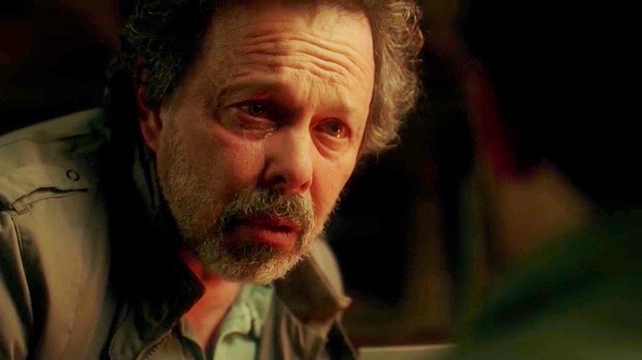
Metatron tells God, “I know I’m a disappointment, but you’re wrong about humanity. They’re your greatest creation, because they’re better than you are. Sure, they’re weak, and they cheat, and steal, and destroy and disappoint, but they also give and create, and they sing and dance and love.”
He explains in this simple statement exactly why humanity is the perfect balance of Light and Dark. Where God and Amara are these extremes of being and nothingness, creation and destruction, light and dark, and exist as absolutes, it is humanity that blends both extremes into shades of grey and shows a mirror to both sides as a whole. It is humanity that stands above these two as a fully formed being that can utterly destroy and create. Each human being has the capacity to do both and will do both. Each will provide good to the world in some measure. Each will provide bad. It is in the balance and harmony of the soul—the very thing that God created so long ago—that allows this to flourish within humanity.
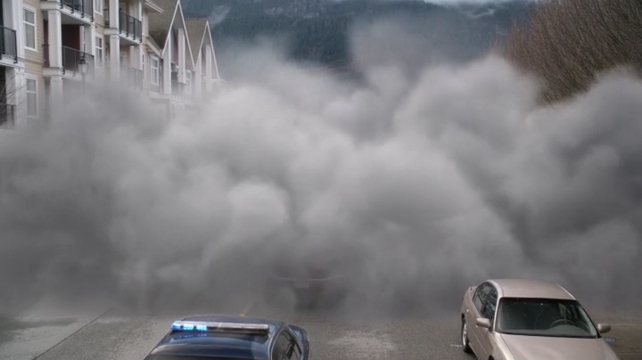
It is also why Amara is able to manipulate humans. She can tap into that darker side, bring it forth, and unbalance things. She can make people act on their darker impulses and leave destruction in their wake. It’s captured in the infection in Hope Springs as she moves through a fog, conscripting all she touches to her side. The darker doubts, the fears, the drive to destroy are brought forward with violent consequences as she turns loved ones against one another. She makes the deputy kill her husband. Another cop describes the scene, “It looks like Deputy Harris shot her husband point-blank in the face.” She makes people “rabid” as they attack anyone and everyone they meet. She feeds on their despair and makes them lose all hope. She reveals that God’s light is a lie and that he will not save them—no matter the truth being that so far God has done nothing but sit on his hands. It is the balance of light and dark, creation and destruction captured in the human heart that allows her to manipulate God’s latest creation.
Her rage and fury at God ignores the fundamental truth about humans. Her view as nothingness and destruction ignores the beauty and light and truth about humans: that they will push onwards no matter the odds.
Metatron understands this as he faces down God. He calls God a “coward.” Metatron twists the knife even further, advocating for humanity as he points out the greatest trait we posses. He states firmly, “And above all, they never give up! But, you do! ”

No where is this captured better than in Sam and Dean themselves. Understanding that they are chasing after God’s sister, a being far more powerful than either of them with little to no hope of winning, the brothers chase after the first real lead they’ve gotten in weeks. They will not stand by and watch everything burn. They will not go down without a fight. Sam and Dean know what is coming and will do what they can for however long they can to save as many as they can. It is what they do. It’s the very mission they’ve committed themselves to this season. They are in this for “saving people” and even if it seems pointless or hopeless they will not stop. Sam and Dean embody the best of us in this regard. They are the ones that do all the fighting when faced with the horrors of Amara’s fog. They take action.
The Winchesters have no weapons. There is no Hand of God they can use. They have no spells. There’s no magic way to lock her back up in the Mark or a similar cage. All they have is their tenacity to keep fighting. The town around them is filled with panicked people, trying to understand what has befallen them. The town has men, women, and children all soon to be infected and destroyed with Amara’s despair. They are heartbroken by the voracity of her fog as it rolls in and consumes the light in everyone it touches. All the dark thoughts surface. Violence erupts all around them in waves. Their resources are low and they have little recourse but to retreat into the police station and try a last stand.
This could be the last thing they ever do—and they will do it as they’ve done so many things before: together.
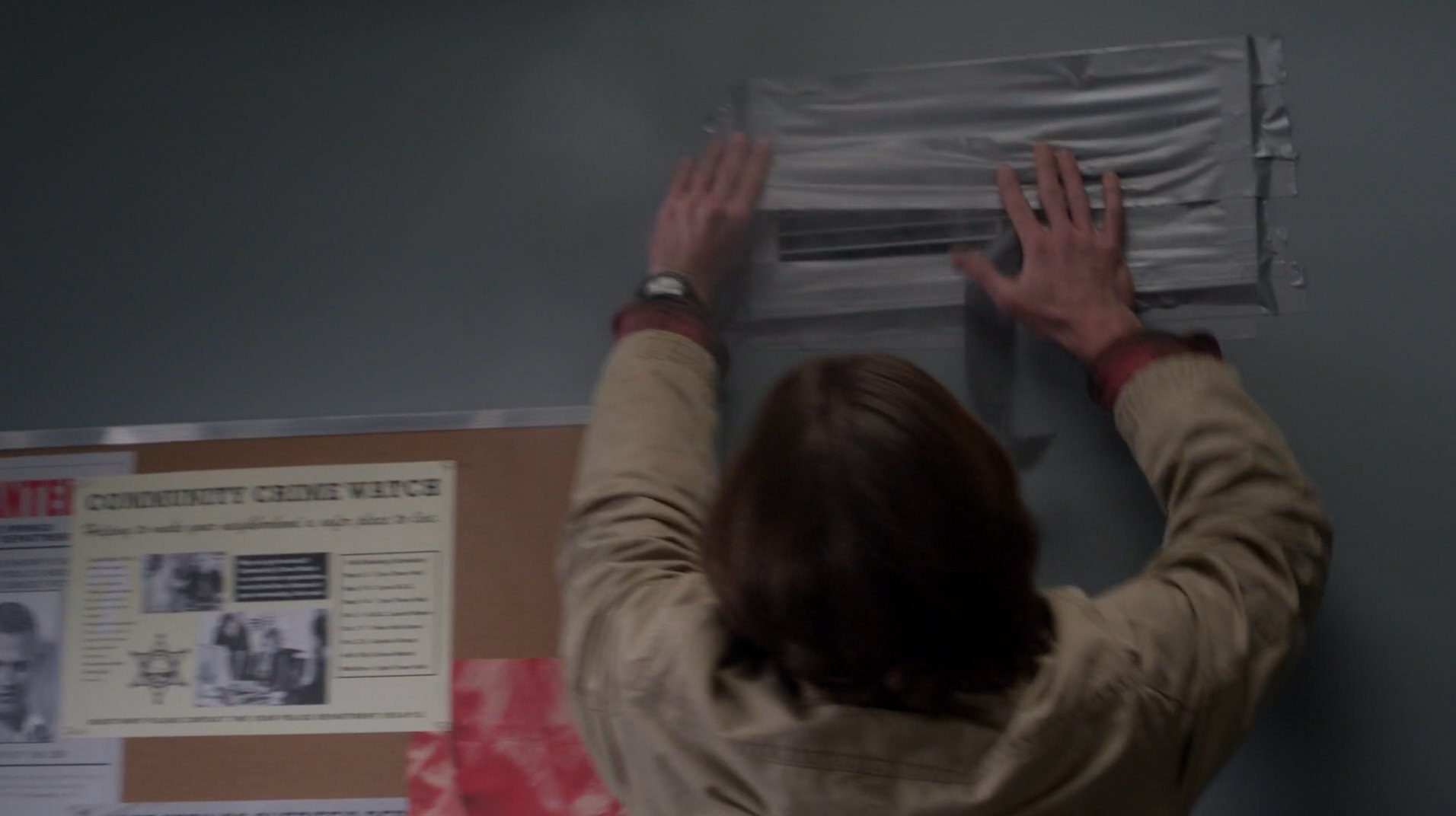
Their last ditch effort resorts to the supposed cure all: duct tape. The material lauded as being a fix-it for any and every problem becomes their method for blocking her poisonous fog from entering the cramped room. They seal the windows and doors. They seal the ducts. They try to keep everyone safe. It is for naught as the tape does not hold fast and the brothers are facing the infection coming to take them all. It seeps in and infects Sam first. Sam falls because he noticed the hole in the tape and tried to repair it. He took the risk of being infected so that the others may be spared. It is no different than his desperate attempt to save people consumed by the fog outside—only stopped by Dean’s plea to flee before they both succumbed. Now he does so again to save a child—a family—his brother—from what Amara is about to unleash.
It is a lost fight—and yet they will not quit. Amara’s inky tendrils have already gripped Sam and he warns Dean, “You’re gonna choose Amara. Over me. Over everything.” He knows what will happen to him. He’s already endured this infection once before—cured by the use of burning holy oil. Sam knows it will twist him and turn him into a vicious monster. It will eradicate his light and his goodness to replace it with destruction and chaos. He will not subject his brother to the same fate nor will he allow himself to hurt Dean.
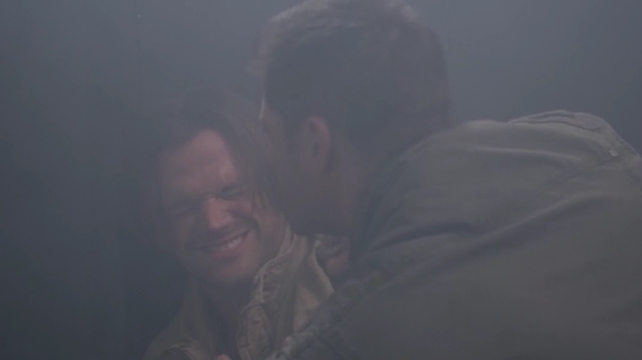
Even worse, she’s also dug into his psyche and made him lose hope. He tells Dean, “I’m sorry, I didn’t mean it. I can’t fight this, you gotta go. You gotta get out before you get infected. Before I hurt you.”
Dean, unaffected by Amara’s fog, remains steadfast. He will not let Sam go and he will not give up. There’s no quitting for either of them. He won’t let her win. He won’t let her take him away from Sam. He tells his brother, “No. I’m not leaving you, ever!”
It is in this moment that Sam and Dean become the divided halves—a representation of God and Amara, of Light and Dark, of Being and Nothingness. It is in this division that Amara hopes she will win. It is in this division that exposes the beauty of humanity as a whole—of the brothers as humanity’s champions and representation. They are a single unit—a whole that cannot and will not be divided or destroyed. It is in not giving up on one another that will make them the unstoppable force and truly transcend Amara or God.
Even if they should lose—they’ll do so together. It is what makes their brotherly love reflect all the good in humanity, too.
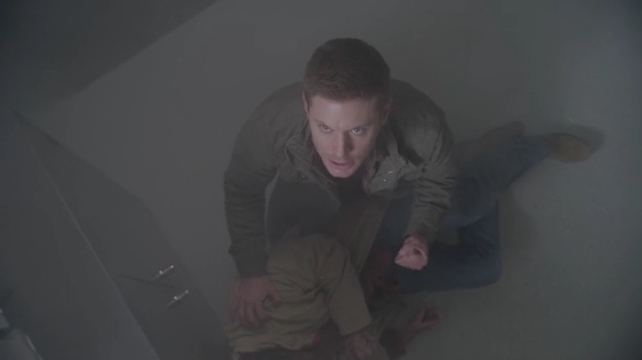
The brothers have reached that final moment—and once again Dean is forced to watch his brother die in his arms. He has no other chance to stop this. They are out of options. While he won’t quit and he won’t back down, there’s no more moves for him to make. Save one. On his last shred of hope and the building anger he’s carried for a life time, Dean shouts, “Stop this! You hear me, you dick?”
It is a testament to how much humanity will not quit. Dean has doubted God, he’s been angry with God, he’s fought against God’s plan his whole life, and yet when backed into a corner, he will not quit his supplications to a being he believes—and knows—no longer cares. It is the only card he has left to play and so he will.
And then a miracle happens.
A bright, brilliant white light shines from Sam’s coat pocket. With that light, Sam is revived and cured. On a familiar black cord hangs a brilliant amulet—the very same one that Sam once gave Dean for Christmas so many years ago. It has revealed that God is actually with them and has heard Dean’s demand. He has finally emerged from the shadows.
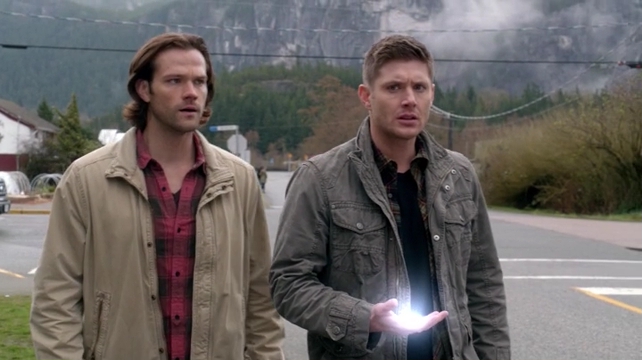
In many ways, it is Metatron’s goading that has forced Chuck to finally resume being God. He did not like the idea of Amara writing the story. This is his story, after all. He didn’t like the notion of her destroying everything yet again. He didn’t like being considered a coward. He didn’t like being told that he quits.
But it is in seeing the never quit attitude of the Winchesters that finally brought him into the fray. God has much to answer for. The Winchesters have just as many questions. Their “talk” will be wrought with much anger and doubt and disbelief. After all, the last they had heard of “Chuck” they had believed him to be dead, a Prophet of the Lord replaced by Kevin Tran. The amulet had been in his presence once before—and failed to detect him.
It leaves us wondering just how the Winchesters will handle this. But one thing is certain: it is their never quit attitude, their heroism, and their humanity that will win out over the Darkness and anything else that comes their way. It is in this “greatest creation” that God can finally find something that is better than himself and his sister—and if that isn’t worth fighting for, perhaps nothing is.



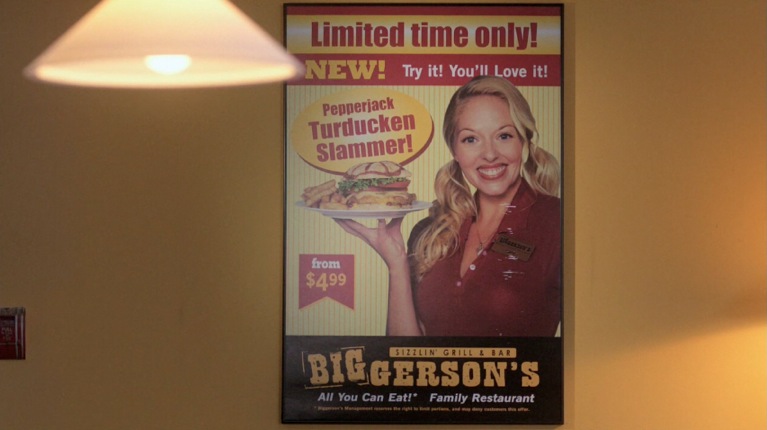
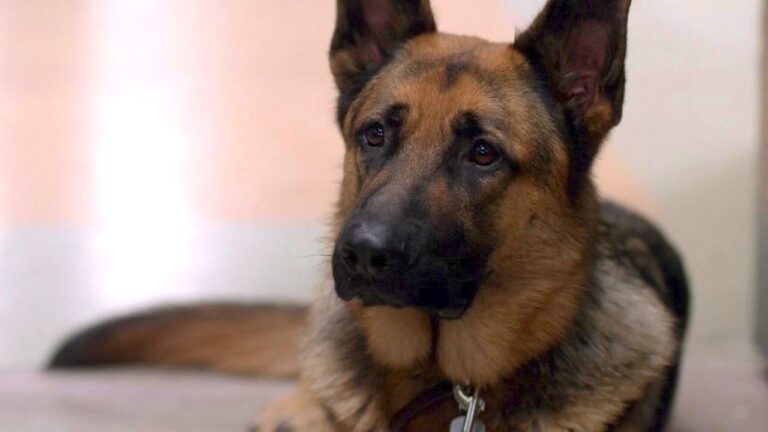
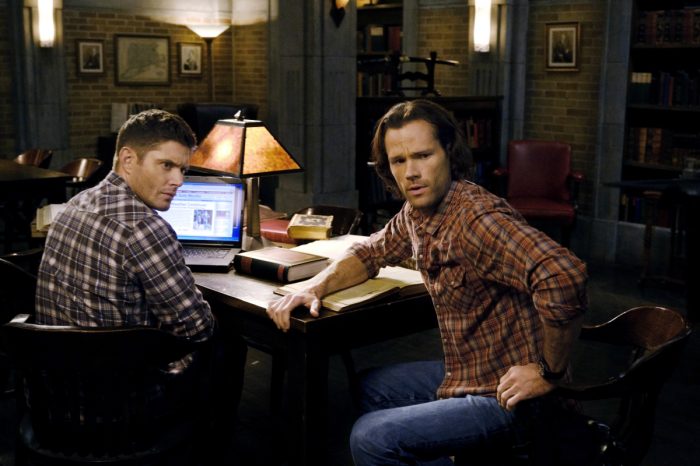
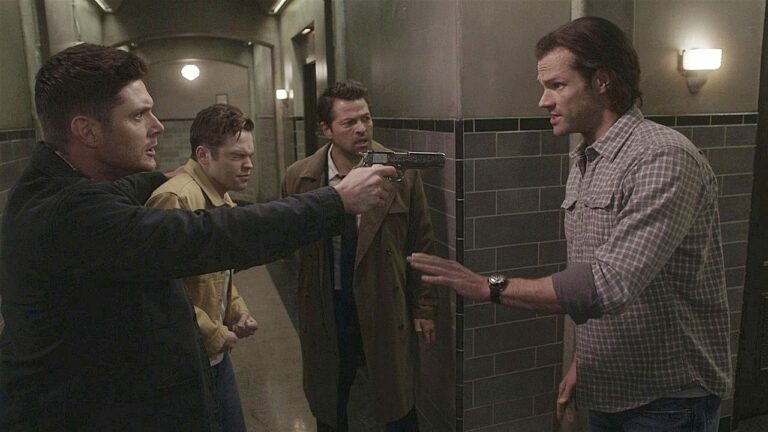
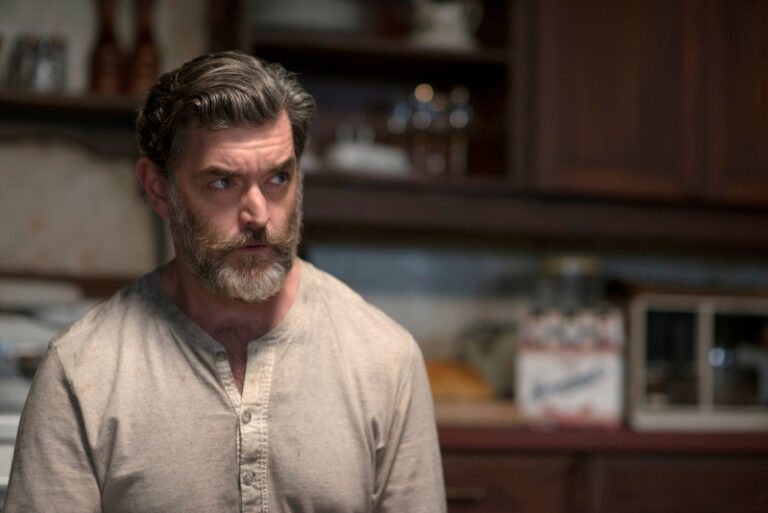
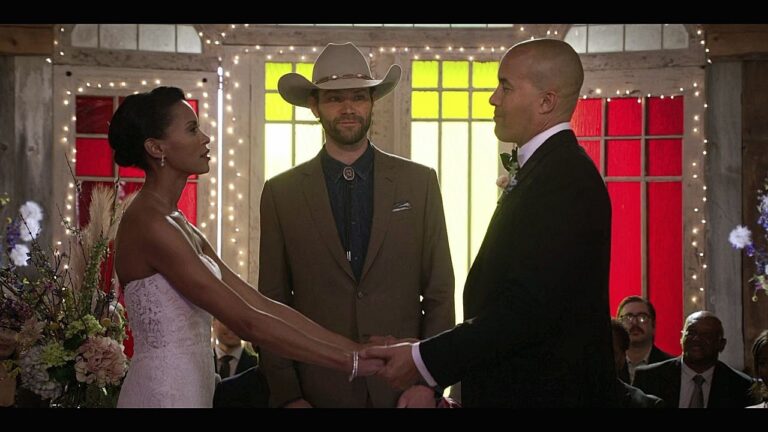
Leave a Reply